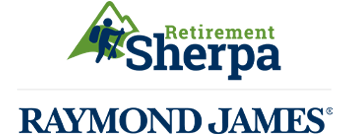Transition To Retirement
Transition to Retirement
You're almost there
You've likely thought about what retirement will be like, but have you defined the details that will make up the next phase of your life? Now is the time to nail those down and identify your short- and long-term goals. Remember, retirement isn't an endgame; it's a full and active part of your life that could last a long time so you'll want to be as confident as you can - financially, emotionally and physically. We can work with you in the years and months leading up to this new stage. And when it comes time for the next journey to begin, we'll be there to help you continue planning for your future.
Key milestones to keep in mind as retirement approaches
- 60 - First eligible for Canada Pension Plan (CPP) benefits - with reduced benefits
- 65 - Full retirement age for CPP
- 65 - Full retirement age for Old Age Security (OAS) benefits
- 70 - Maximum CPP and OAS benefits
- 71 - Must convert RRSP to RRIF or annuity before the end of the year you turn 71
- 72 - Required minimum distributions begin the year you turn 72
Planning For Life
-
Envision life in retirement..
Everyone's vision is different so it's important to define your expectations beforehand so we can appropriately plan for this next stage- Identify short- and long-term goals. Think about how and where you want to live. Or how you'll spend your days.
- Think about the unexpected. It's just as important to plan for these events so they don't catch you unprepared.
- Assess your obligations. Be realistic about how much financial help you'll be able to give to aging parents or adult children, while covering your own needs
- Prepare mentally and emotionally. It's likely you'll experience several emotional stages as you adjust to your new lifestyle.
-
Think about how you'll pay for it.
Now that you've thought about life after your career, it's time to think about how you'll pay for it all to ensure it lasts as long as you need it to.
- Determine your living expenses and decide if it is a "need" or a "want." Don't forget about those minor expenses that can add up.
- Research healthcare costs. Determine which long-term care options would work best for you.
- Estimate your income. Coming up short? If so, decide where adjustments are needed to cover this shortfall.
- Manage your cash flow. Consolidate accounts and set up a smart withdrawal strategy while maintaining your emergency fund.
- Reduce or eliminate debt before you retire, especially "bad" debt like credit cards or car loans.
-
Continue planning for your future
Drawing down on assets in retirement doesn't mean you stop planning for the future.
- Re-evaluate your expenses and income sources to cover your needs and wants. Revisit these and your goals often
- Redefine your risk tolerance and keep investing to accomplish those goals.
- Protect your legacy. Review and update beneficiaries on all accounts and all estate planning documents. And discuss your wishes with your family.
- Get generous. Define your philanthropic goals and put a tax-efficient giving strategy in place to achieve those goals.



